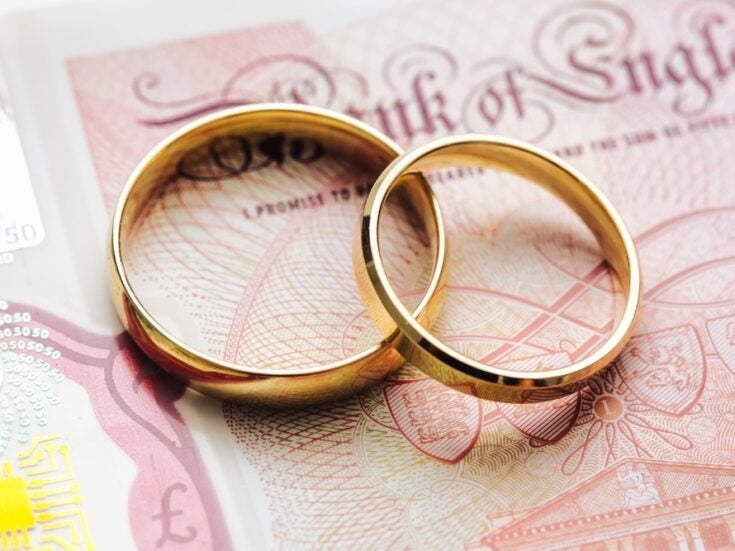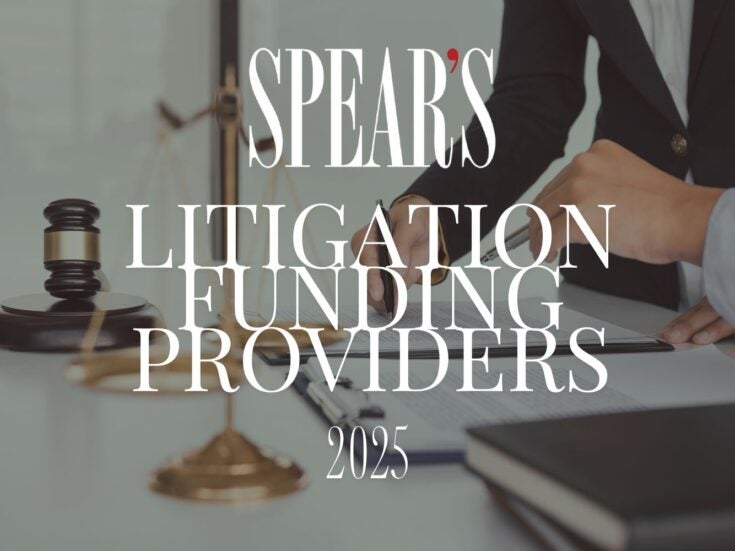
ED MILIBAND AND partner Justine Thornton, are just two of the ever increasing number of unmarried cohabiting couples in the UK – a trend which has resulted in the provisional number of marriages registered in England and Wales in 2008 being at its lowest level since 1895.
According to the British Social Attitudes Survey 2010, just over half of us believe that cohabiting couples are protected by a common law marriage, creating rights and benefits similar to those of marriage. In fact, this is a complete myth and can be a dangerous misconception – leaving individuals open to financial threats, insecurity and costly litigation. So what should you be aware of if you are part of this growing trend?
Finances
When a married couple divorces, the courts have a wide discretion to redistribute the parties’ assets in light of a number of factors including financial and other, non-financial, contributions and the needs of both parties. On the breakdown of a cohabiting relationship however, if a person has made no direct financial contribution to the relationship (and there are therefore no claims in property law) and there are no children, that person has no financial claims against their former cohabitee.
If there are any children, the parent with care of that child can make an application to the court for maintenance payments for that child, but can make no claim for payments for themselves in their own right. However, if the level of payment can not be agreed, and if income exceeds the Child Maintenance and Enforcement Commission limit, the parties may find themselves embroiled in litigation.
If their former partner has died and left no provision for the surviving partner in their will, they may, as a person dependant on the deceased, be able to make a claim on their estate. Again, the position is uncertain and, without agreement between the partner left behind and the executors of the deceased’s estate, litigation may ensue.
Property
In many cases, of course, both parties will have made a financial contribution to the purchase of their home.
In 2007, after 18 years of co-habitation and the birth of four children, unmarried Ms Stack and Mr Dowden litigated all the way to the House of Lords (as it then was) to determine what was the appropriate division of the sale proceeds of their jointly owned home. The outcome was a 65-35 split in Ms Stack’s favour, largely as a consequence of her higher contribution to the purchase price, leaving her £115,000 better than the 50:50 division awarded by the court at first instance.
And you may remember the seemingly unintuitive court decision when Mr Kernott was awarded 50% of the value of the home of his former partner, Ms Jones, purely by virtue of his status as joint legal owner of the property, despite having made no contribution to the purchase price, nor to any subsequent mortgage payments, and despite having moved out 17 years previously! However, this decision is now the subject of an appeal so we will have to await the final outcome.
The lesson to learn here is that any unmarried couple purchasing a property together in joint names should consider signing a declaration of trust, stating their respective percentage interests in the value of the property; and if they consider that their respective interests have changed, they should reflect this by amending the declaration of trust.
In short, unlike spouses, cohabitees have very few claims against a former partner, merely as a consequence of cohabitation – but there are still traps to be aware of. One means to avoid any seeming unfairness, and the uncertainty of litigation, is for the parties to enter into a written agreement in respect of their financial affairs.
Children
We all recall the media furore following the discovery that Ed Miliband was not named on the birth certificate of his elder son, Daniel, and thus had no official “parental responsibility” (the name given to the host of legal rights and responsibilities that a parent has in relation to their child). Without this, a person is not legally entitled to a say in matters such as where a child should be educated or their religious denomination. But how do you acquire parental responsibility?
Where a child’s parents are married to each other, both parents automatically acquire parental responsibility but, as in the case of Mr Milliband and Ms Thorton, what were their options?
One option is for the father to be named on the child’s birth certificate. If you are one half of a married couple, only one of you needs to register the birth and both parents can be named on the birth certificate. However, if you are part of a cohabiting couple and you want the father to appear on the birth certificate, both of you need to attend to register the birth. Unfortunately, if you are attending a climate change summit in Copenhagen, you may not have the time to do so! As a consequence, you will not be named as the father on your new baby’s birth certificate, and will hence not automatically acquire parental responsibility.
However, all is not lost and you and your cohabitee can attend at the registry office to re-register the birth of your child, with the father named on the certificate. Other options to acquire parental responsibility are for you both to sign a parental responsibility agreement, or for the father to make an application to the Court if the mother does not consent.
Ed Milliband and Justine Thornton have made public their intention to marry, stating that political events have so far “got in the way” – but if you are co-habiting currently, it might just pay to know where you stand and be aware of the myths surrounding common law marriage.
Hannah Garner is a solicitor at Farrer & Co
Case study of cohabitation
|
Mr X and Ms Y have been married before, and both suffered bruising and acrimonious divorce proceedings. They do not wish to repeat the experience. Mr X is wealthy and Ms Y is not, and they have a child, Zenia. Ms Y has given up her job to care for Zenia and look after the family home but is concerned that if the relationship breaks down she will be left with no means of providing for herself. She knows that, if this happens, there are claims she could make in respect of Zenia but would rather clarify the situation now, than worry about all that uncertainty in the future. Mr X is the patriarch of a large family and has several children from his previous marriage. He is keen to avoid the possibility of family discord in the event of his death. The solution for these individuals, who have no desire to marry again, could be to sign a cohabitation agreement, setting out what would happen on the breakdown of their relationship. This might include a capital payment to Ms Y for each year of cohabitation to reflect the duration of the commitment, and maintenance to provide for her financial needs; and provision for housing and maintenance for Zenia (although the agreement would not be binding in respect of Zenia, since either party could still make an application to the Court in this regard, usually only until Zenia is 18). |







